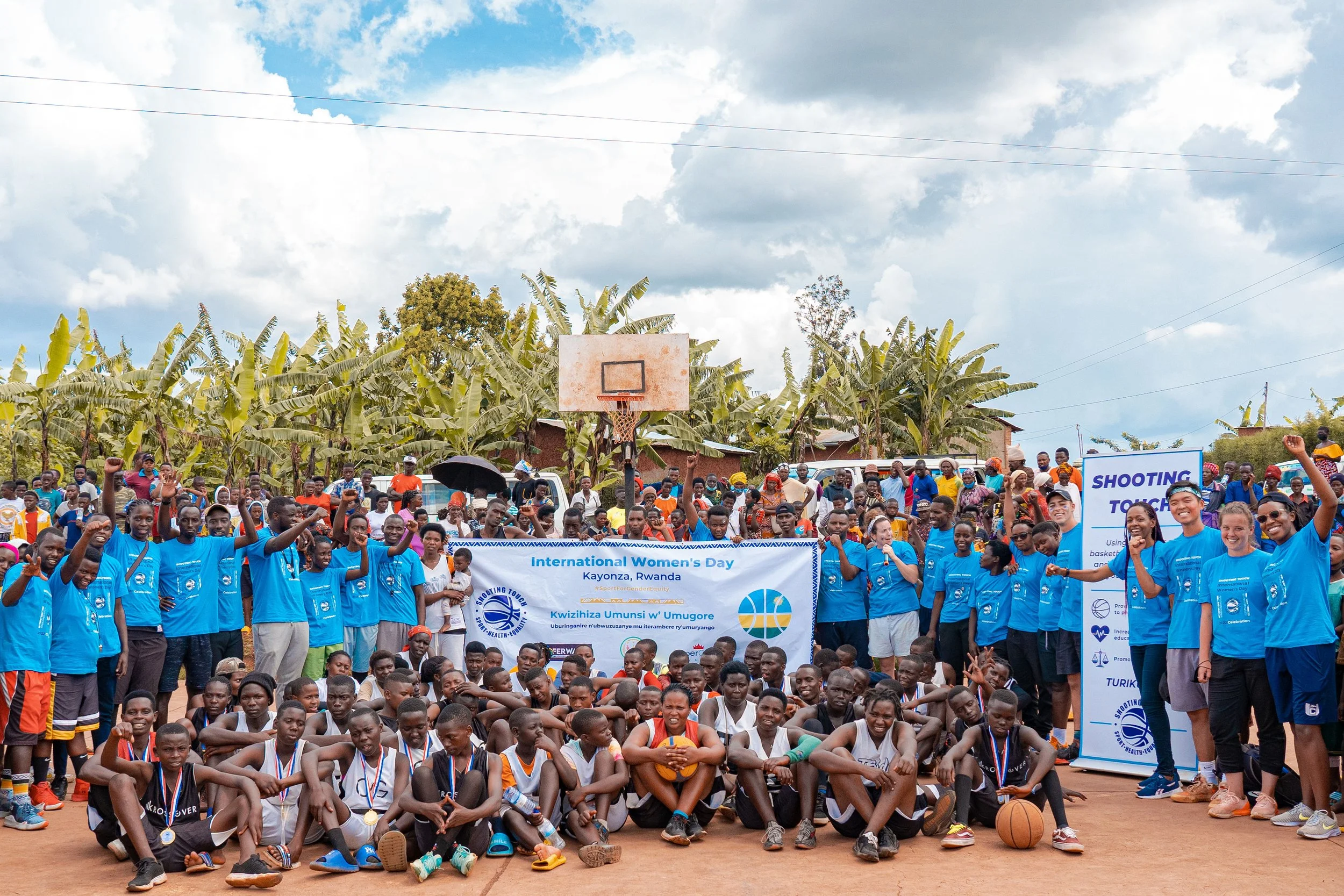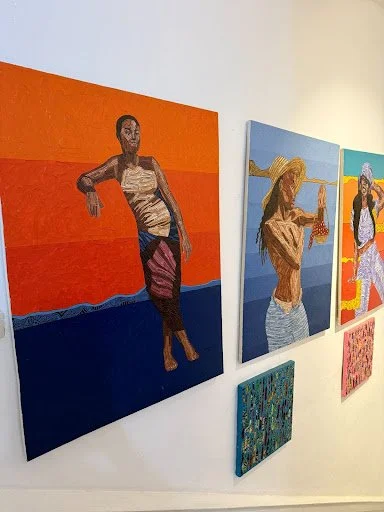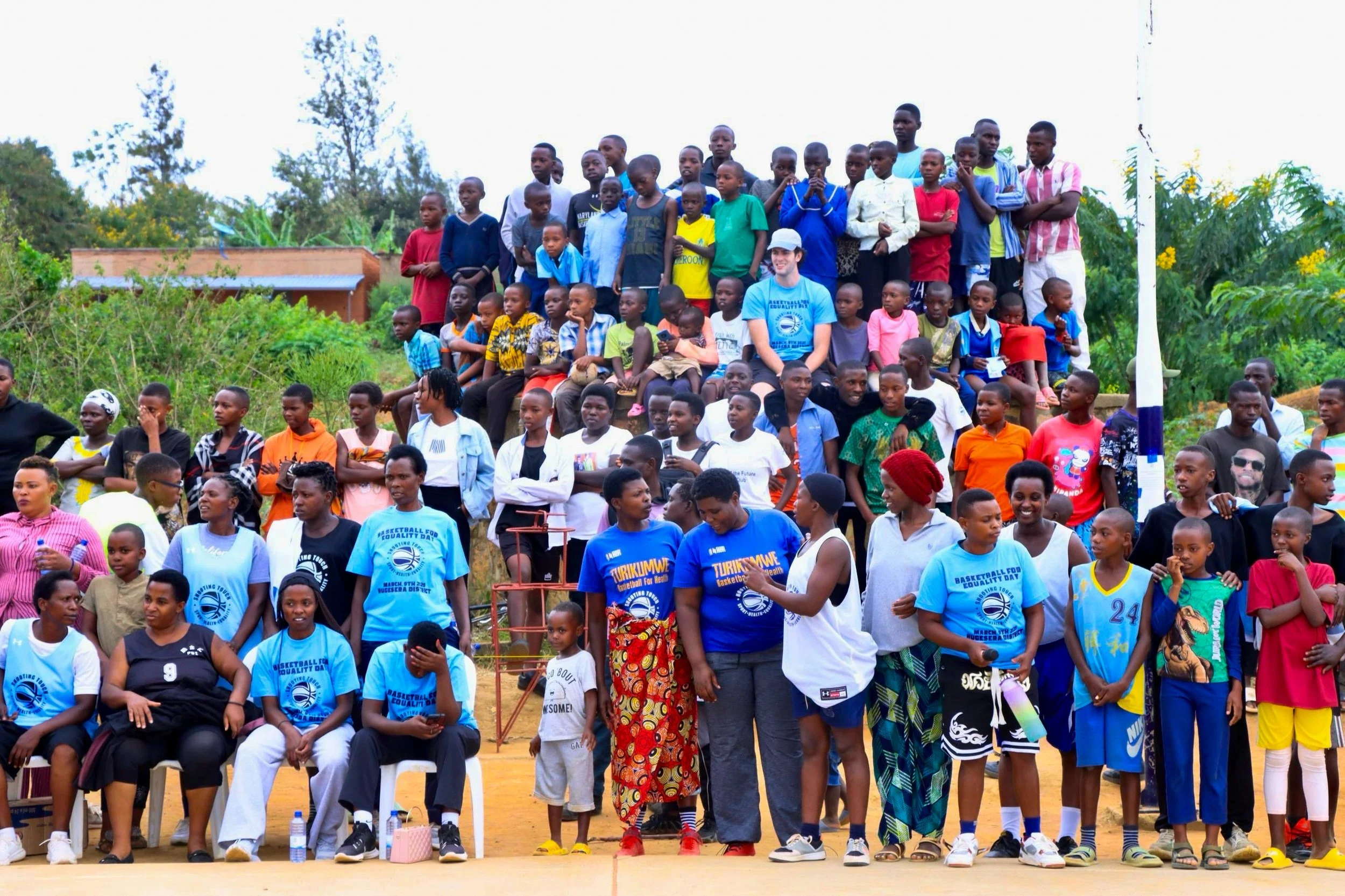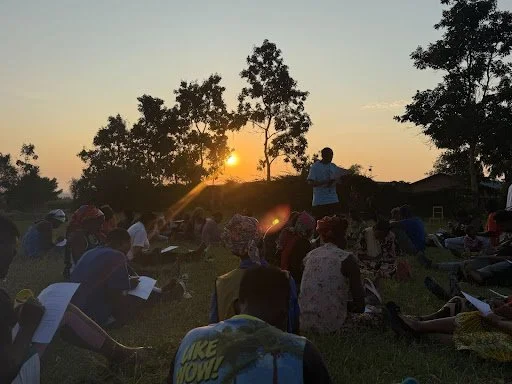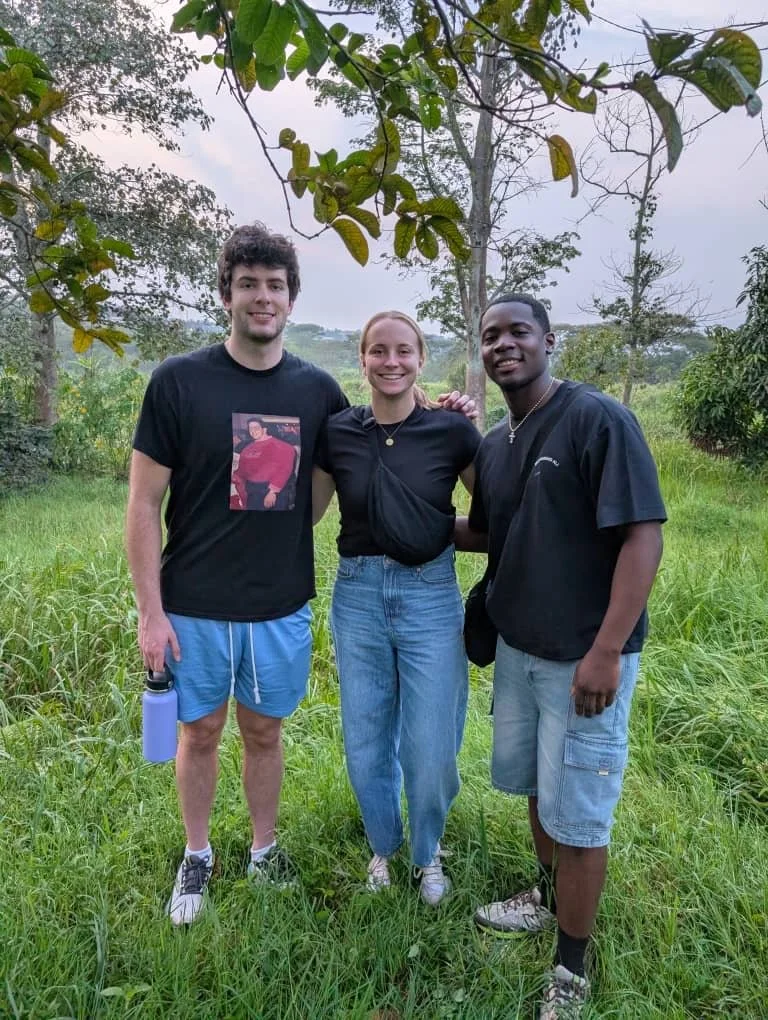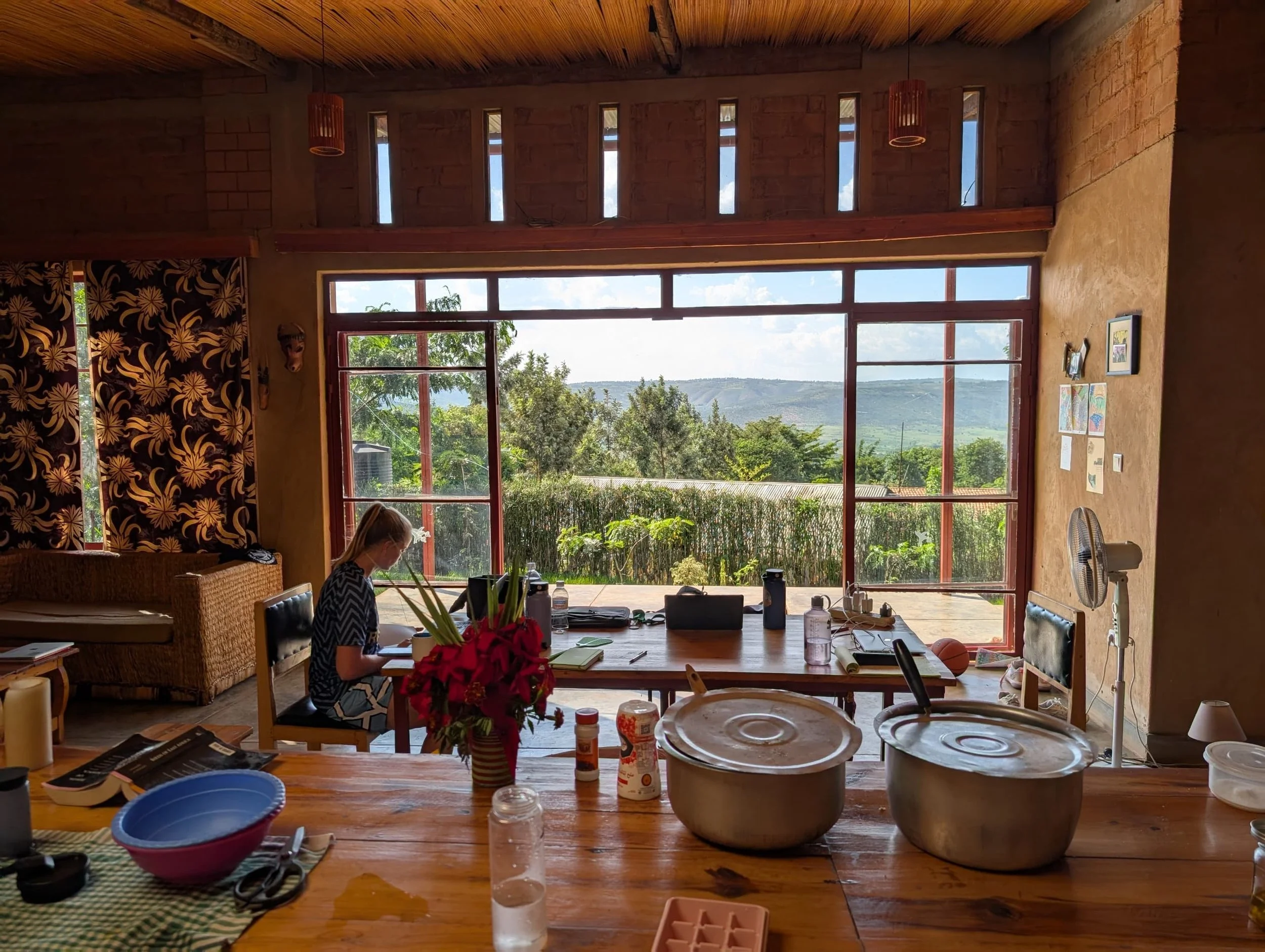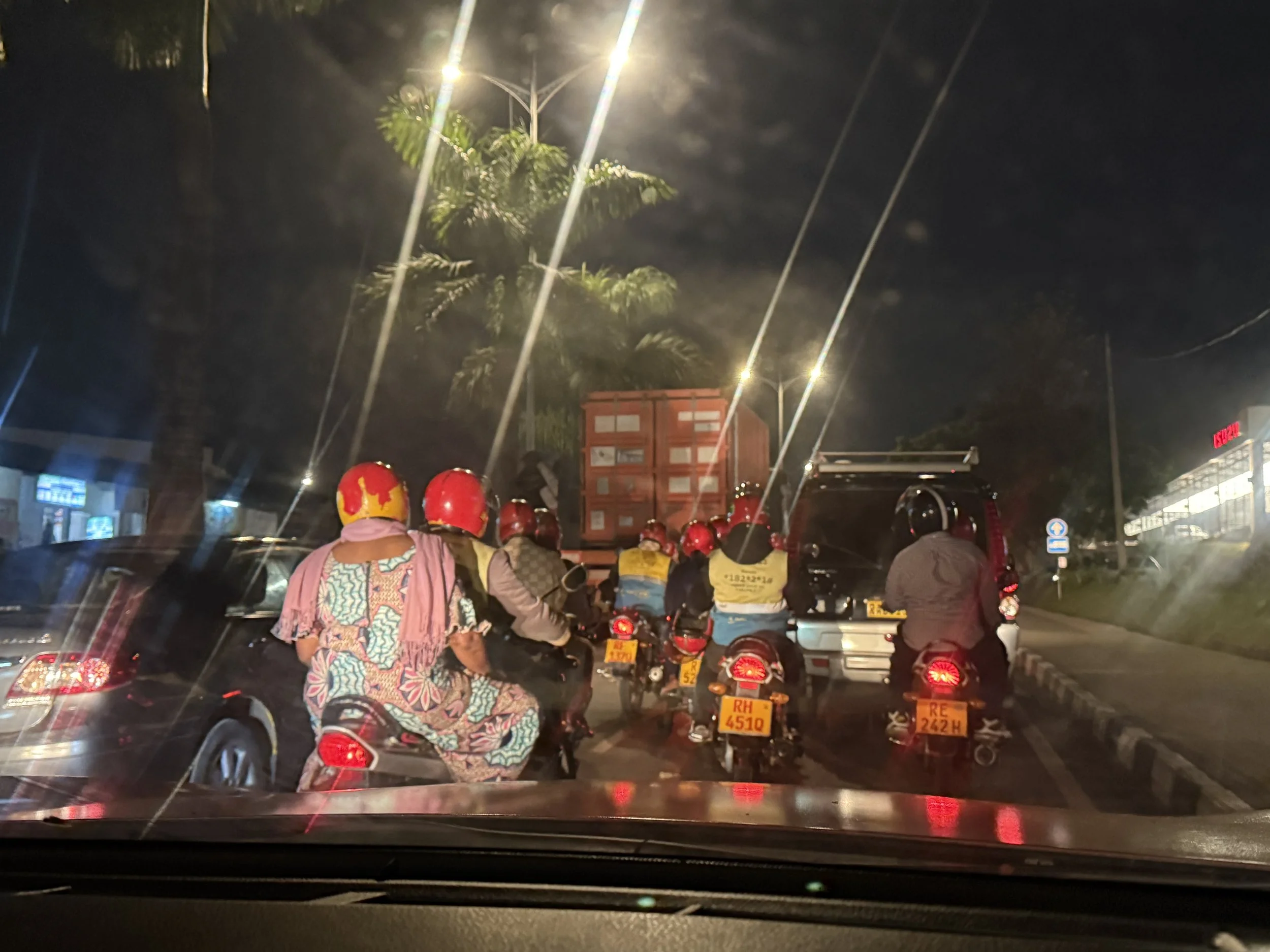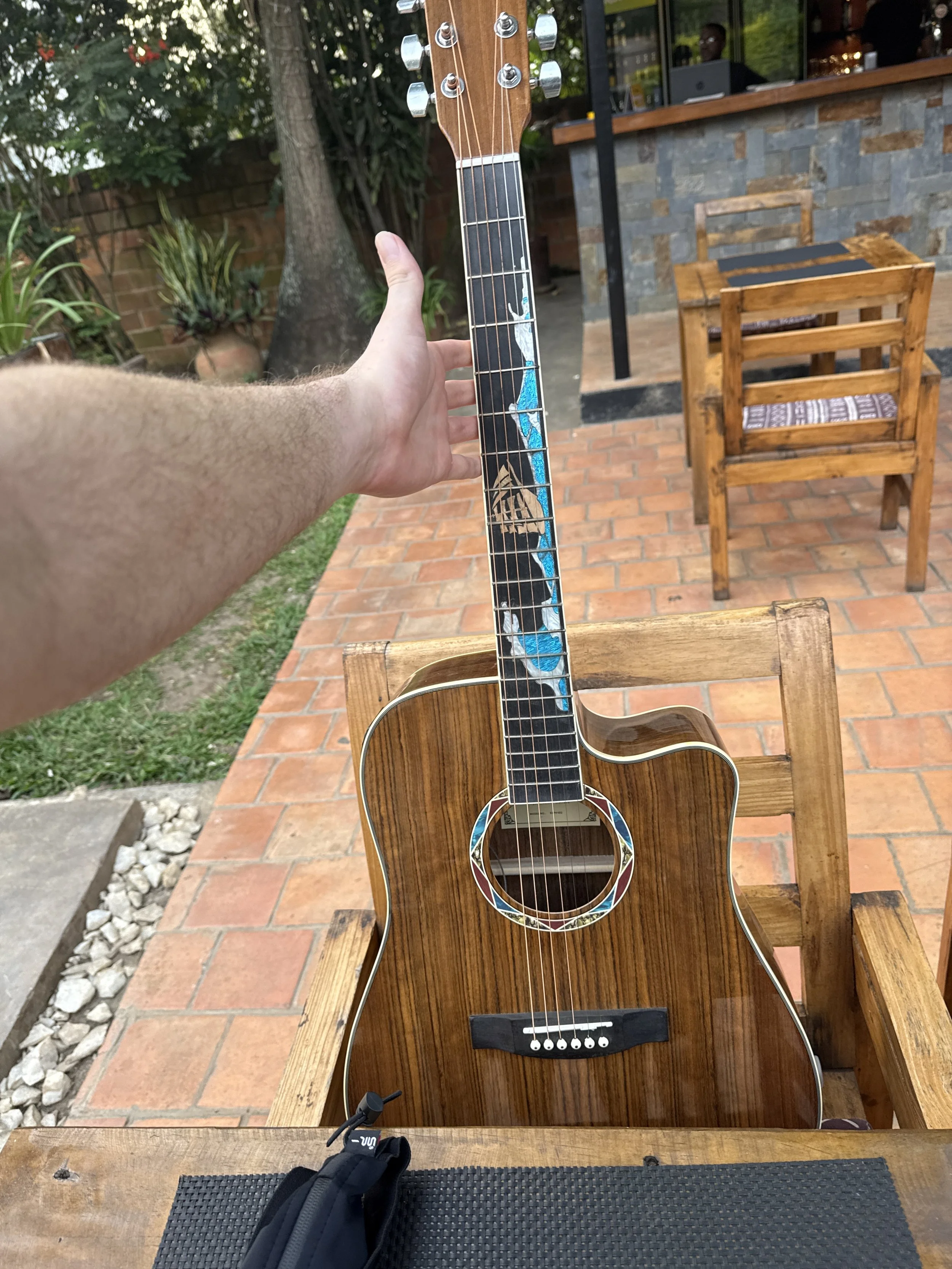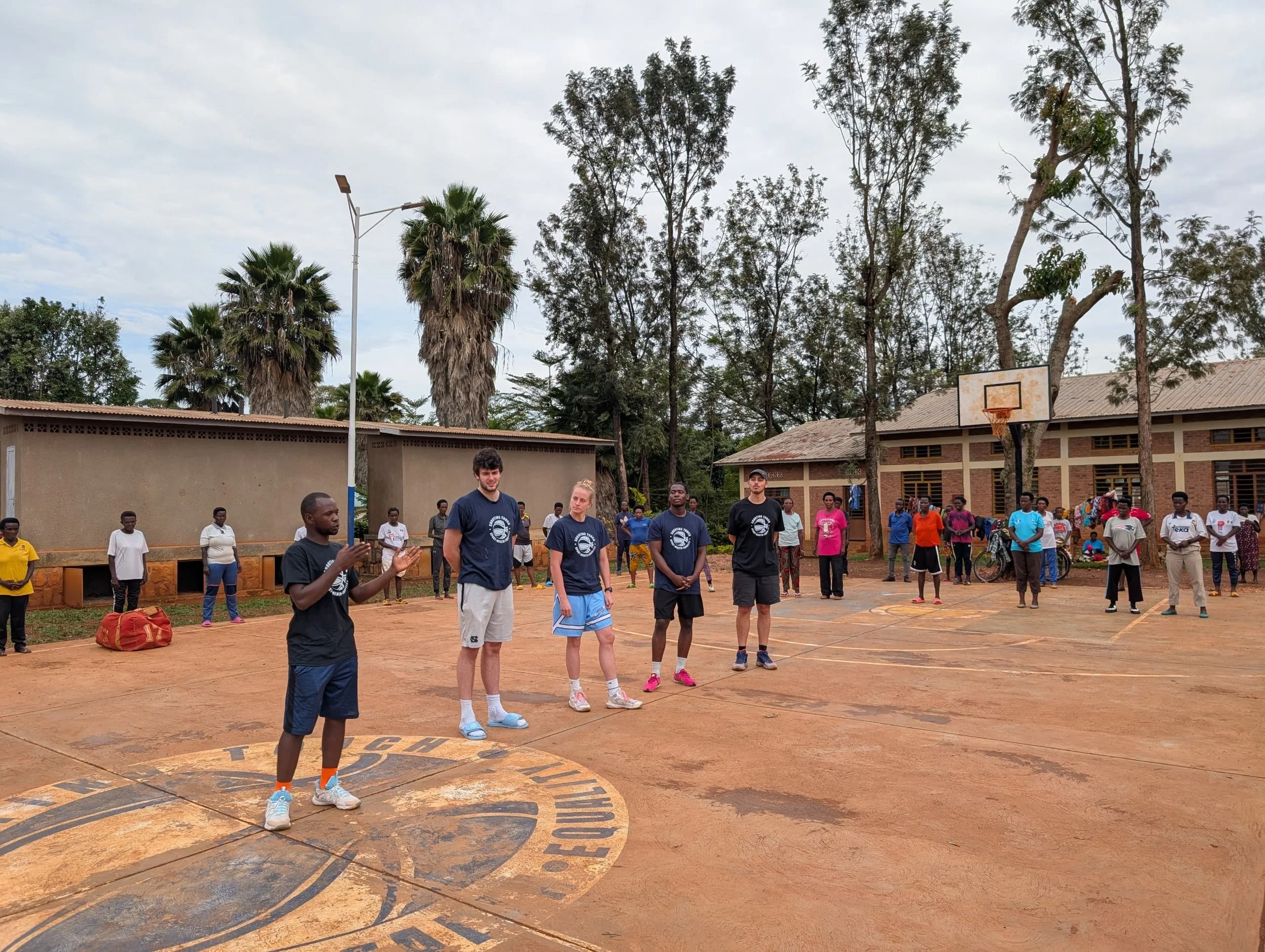Over the last few months, we have been super busy out here in Rwanda. Some of the highlights were hosting the U.S. Embassy at one of our biggest events of the year. Getting on the jumbotron at the Rwanda vs. Lesotho soccer game, traveling to Kenya and getting to see the largest slum in Africa - and an awesome non-profit fit right inside, and getting to play A LOT of basketball.
Rwanda VS Lesotho
I have begun getting into more of a food routine - commonly eating a very similar collection of foods each day. My diet consists of rice, beans, potatoes, avocados, mangos, onions, and many eggs. My neighbour sells eggs at her house and she knows to load up the 30 pack every couple days. I have decided that no matter how often I eat avocado toast with eggs on top, it is delicious every time. A huge revelation for me has been discovering how incredible sauteed onions are. Not sure how this slipped through the cracks for me back in the U.S. but it is now a staple. As my diet has gotten a bit more consistent and my stomach has adjusted, I have been holding onto weight better than I did in the first few months.
Another recent food revelation is how delicious goat meat is. I’m not sure why the U.S. is anti-goat, but is it incredible. One of my favorite foods out here is goat kebabs (called brochette). I will certainly be sharing this flavor sensation when I get back to the States. However, in recognizing that some folks might have some mental apprehensions over it, I plan to introduce covertly. You thought that was beef in the bolognese??
I’ve found that it is easy to get caught in my routine and not explore as much as I did in the beginning of the fellowship. I have been trying to get out more because I never know what I’ll walk into. For example, while visiting an Art Gallery in Kigali (whose owner, Innocent, actually taught a few lectures at UNC last spring), I noticed there were a few high-school aged kids playing a large cow-hide set of drums and dancing to the drum beat. Out of pure curiosity, I asked Innocent if there was a performance or if the kids just come and dance for fun. He said that they are on a dance team and are practicing for an upcoming performance. He then asked if I wanted to learn how to play the drums. Not wanting to interrupt their practice, I politely declined. However, Innocent insisted and so I hopped in and began playing. After a learning period, the kids began dancing to my drum beat, although it was not quite as succinct as when they were playing the drums.. Then the kids asked if I wanted to learn the dances and after these kids showed me the kindness of dancing to my off-tempo beat, I said, “Sure, I’ll hop in for a song or two”. The next hour and a half of dance class left me dripping in sweat as my drill instructor and now friend, Astride, barked, “Incorrect, start again” many times over. These kids were not messing around and I felt lucky to be able to learn a few pieces of their culture.
Inema Art Center
My new moves came just in time for one of our biggest events of the year. International Women’s Day is a big deal at Shooting Touch and each year we host a big celebration complete with a 3v3 basketball tournament for four age groups, a 5km march, extensive health testing, traditional drum and dance performance, and this year, a guest appearance by the Charge D’Affaire of the U.S. Embassy. The event was not without chaos as at about 2AM the night before the event, we were informed by the police that the march was cancelled due to difficulties around traffic control that day. This presented a bit of a problem as about a thousand people were planning to be at that march and there wasn’t exactly an email chain or facebook group available to let them know of the change of plans. Fortunately, after an extensive sector-wide game of telephone we were able to convey the new agenda and the event ran smoothly and everyone had a great time. Four courts participated in the tournament, displaying some serious rivalries between the coaches, players, and courts. There was a tournament for U13 kids, U18 boys and girls, and the women and the players represented their “Home” Shooting Touch Court. The games got super competitive and were exciting all afternoon.
International Women’s Day
Players from each of the courts take tremendous pride in representing their village in these events. These communities are very tight knit with many families living for generations in the same area. There is a lot of history in these communities and the players do not take that lightly.
The Fellows!
Before I knew I was going to live in Rwanda, one of the few things that I knew about the country was that a genocide had taken place in the 90s. I was advised that prior to moving, it was crucial to research and try to grasp an understanding the causes, scope, and effects of the 1994 Genocide against the Tutsi. The events in 1994 have effects that trickle into nearly all facets of society. Upon arrival in Rwanda, one of our first stops was a trip to the Genocide Memorial in Kigali, which I can only describe as an emotional, graphic, and powerful description and reminder of the horrors that transpired 31 years ago.
As I have attempted to educate myself, a few facts have stood out:
The primary cause of the the 1994 Genocide against the Tutsi were the social structures created by colonization in Rwanda following WW2. However, when the violence began, Rwanda received nearly no help from the west - in fact, the west denied that a genocide was taking place after countless reports.
After western countries denied support to stop the violence, the current Rwandan President, Paul Kagame, led a militia and ultimately defeated the government in place that was perpetrating the 1994 Genocide against the Tutsi. Instead of instituting a country led by his labeled ethnic group, he outlawed ethnic labeling and declared that all people in the country are Rwandan, nothing else. While Kagame has faced criticism over the years in the global media, I have never seen a country that loves their leader as much as Rwandan’s love Paul Kagame. I got to witness this first hand while attending a John Legend concert in Kigali. President Kagame was sitting in the box directly to my right and instead of watching the concert, many folks in the crowd faced away from the stage and just stared at Kagame. The announcement of Kagame at the concert resulted in pandemonium of support.
The effects of the 1994 Genocide Against the Tutsi permeate nearly every aspect of the country. Everyone over 31 years old has memories of what took place.
Every April, there is a week of remembrance for the victims of the 1994 Genocide against the Tutsi in Rwanda. During this week public sporting events are cancelled, music is not allowed to be played, much of the transport is limited, and many restaurants and businesses close down. While many of my Rwandan friends are typically pretty quiet regarding the topics of the 1994 Genocide against the Tutsi, during this week many of their stories are shared. It’s one thing to hear the numbers, statistics, and chain of events of what transpired, but to hear your friends personal stories is truly heart wrenching.
To learn more about the 1994 Genocide Against The Tutsi, you can check out this link.
During a week off from work, I traveled to Kenya. My first stop was Nairobi - the capital city and one of the largest in Africa. I stopped by CFK Africa, a nonprofit founded by Rye Barker, a UNC graduate whom I met in Chapel Hill, a few months back. CFK has built a health center, pregnancy clinic, youth center, and sports program inside of Kibera - the largest slum in Africa. Kibera is a square 1km territory of government-owned land, filled with improvised housing for up to 1 million people. CFK is deeply embedded in the community and their work is incredibly important and inspiring.
After the trip to Nairobi, I traveled to Mombasa, a beach town right on the Indian Ocean. The journey was exciting as I got to take a train straight through a safari park, seeing elephants, giraffes, ostriches, and zebras from the train. I spent the next few days hanging out by the beach, which is a drastic contrast in terrain from the land locked Rwanda. On my return to Nairobi for my flight, I caved…. And went to the nearest KFC. You should have seen the looks of horror on the faces of the folks in that restaurant as demolished a 5 piece bucket and large fry in 8 minutes.
Some talented fellas up in Kenya
Upon moving to Rwanda, I had no reference for any other countries in Africa. However, after seeing Kenya (which I loved), I could truly appreciate Rwanda. Rwanda is likely the cleanest and safest country in Africa. I can walk freely through any part of the city or village during all hours of the day and night. There is a comfort that comes from how reserved the folks are here. It is ambitious and growing rapidly in an incredibly sustainable way.
Speaking of comfort, I got a nice healthy fix of March Madness games. I found that by using a VPN and the March Madness mobile app, I could stream fairly seamlessly. The only hiccup being the time zone but I am down to watch the Heels anytime, even at 4am. Although the next day is typically a bit on the slower side, especially after a loss. I showed my friend and Shooting Touch Coach, Isaie, March Madness and explained what a bracket is. As a total hoop head, Isaie was pretty stoked about the concept of making a bracket and put some good time and research into it. Fast forward to the final four and Isaie’s bracket was in the top .005% of brackets worldwide. Isaie made sure to check in with me after every round to see if his bracket was beating mine, which after a devastating first round Tarheel loss, my bracket was busted. Needless to say, I owe Isaie lunch.

